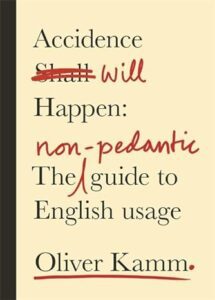Presumed vs Assumed: What’s The Difference?
In this article, we’re going to untangle the mix-up between “Presumed” and “Assumed.”
These two words might seem like they do the same job in a sentence, but there are some cool little differences between them…
Short answer
“Presumed” is often about believing something’s true based on some good hints or evidence, like being a detective putting together clues.
“Assumed,” on the other hand, is more like taking a guess about something without much to go on.
So, if you’re ready to dive in and figure out when to use “presumed” and when to go with “assumed,” stick around.
Definition of Presumed
Alright, let’s break down “Presumed.”
Think of “presumed” as playing detective – you have some clues or evidence, and based on that, you believe something is true. It’s like making an educated guess rather than just shooting in the dark.
For example, if you see wet umbrellas and people wearing raincoats, you might say,
“It’s presumed to be raining outside.”
Here, you haven’t seen the rain yourself, but the clues point to it. Or in a mystery novel, a detective might say,
“The suspect is presumed innocent until proven guilty.”
This means based on the legal system’s principles, they believe the suspect is innocent until there’s clear evidence to show otherwise.
“Presumed” pops up a lot in situations where there’s some backing for the belief, even if it’s not 100% confirmed. It’s used in legal contexts, scientific discussions, or just everyday life when you’re piecing together what you know to form a belief or an understanding.
Definition of Assumed
Cool, now let’s dive into “Assumed.”
This word is like taking a leap based on a hunch or a guess, without much solid evidence to back it up. It’s when you make a decision or form an opinion, but it’s more about what you think might be true, not what you know for sure.
For instance, imagine you’re waiting for a friend who’s usually late. You might say,
“I assumed she would be late again,”
which means you guessed this based on past experiences, not because you knew for certain she’d be late this time.
OR
In a story, a character might see a closed door and assume there’s a meeting going on inside, even without hearing or seeing any actual meeting.
“Assumed” is used in everyday language when we make guesses or take things for granted without solid proof. It’s like putting the pieces together in your head without checking all the facts first. This word comes in handy when you’re talking about beliefs or actions based on guesswork, hunches, or incomplete information.
Etymology and Historical Usage
Digging into the etymology and historical usage of “Presumed” and “Assumed” can help us understand how these words have come to have their current meanings, especially since they’re often mixed up today.
Presumed
Origins:
“Presumed” comes from the Latin word “praesumere,” which means “to take for granted” or “suppose.” It entered English through Old French.
Historical Usage:
Historically, “presumed” has carried the sense of taking something as true based on probability or reasonable grounds. Over time, it has come to imply forming an opinion based on evidence or likelihood, without absolute proof.
Assumed
Origins:
“Assumed” is derived from the Latin word “assumere,” meaning “to take up” or “adopt.” It also made its way into English via Old French.
Historical Usage:
In the past, “assumed” had a similar meaning to its Latin root, referring to adopting or beginning to have a particular quality, often without justification. Over the years, “assumed” has evolved to mean accepting something to be true without proof or taking on a particular characteristic, often in a way that’s not genuine.
Comparative Analysis
When comparing “Presumed” and “Assumed,” it’s key to focus on their subtle differences in connotation and use, despite their apparent similarity.
“Presumed”
- Connotations: “Presumed” often implies that there is some basis or evidence behind a belief or opinion, though it’s not conclusive. It suggests a judgment made from what seems likely based on available information.
- Example: “Since the lights were off, she presumed nobody was at home.” Here, “presumed” is based on the observable evidence of the lights being off.
“Assumed”
- Connotations: “Assumed” tends to imply a belief or action taken without much evidence or proof, often based on a guess or supposition.
- Example: “He assumed she wouldn’t come to the party, so he was surprised to see her there.” In this case, “assumed” indicates a belief formed without substantial evidence.
Common Mistakes and Misuses
Common Mistakes
Using “Presumed” Instead of “Assumed”:
A frequent error is using “presumed” when there’s no basis or evidence for the belief. For instance, saying,
“He presumed the answer was correct”
without any reason to think so, should be
“He assumed the answer was correct.”
Using “Assumed” for “Presumed”: Conversely, using “assumed” when there are hints or clues supporting the belief is also common. For example, “She assumed it was going to rain because of the dark clouds” should be “She presumed it was going to rain because of the dark clouds.”
Tips for Remembering
For “Presumed”:
Associate “Presumed” with “Previous” knowledge or evidence. If there are hints or clues leading to a belief, use “Presumed.”
For “Assumed”:
Link “Assumed” with “Assumption” or “Guess.” If a belief is based on a guess without solid evidence, use “Assumed.”
Visual Mnemonic
Presumed:
Picture a detective piecing together clues – they’re forming a belief based on evidence.
Assumed:
Imagine someone jumping to a conclusion, symbolizing a guess without enough backing.
Remember, “presumed” implies having some reason, no matter how small, for the belief, while “assumed” is more about making a leap without solid ground. Keeping these distinctions in mind will help you use each word accurately in your writing and conversations.
Practical Tips for Distinguishing Between Presumed and Assumed
To easily distinguish between “Presumed” and “Assumed,” it helps to have some straightforward guidelines and mnemonic devices, along with a comparison table.
Practical Tips:
- For “Presumed”: Think of “Presumed” as having some evidence or previous knowledge. If there’s a hint or clue leading to a belief, use “Presumed.”
- For “Assumed”: Remember “Assumed” as making an assumption or guess. Use “Assumed” when a belief is based purely on a guess without solid evidence.
Mnemonic Devices:
- Presumed: “Pre-” in “Presumed” can remind you of “previous” evidence or knowledge.
- Assumed: “Assumed” and “Assumption” start the same – both are about guessing without proof.
Comparison Table:
| Feature | Presumed | Assumed |
| Meaning | Believing something based on some evidence or likelihood | Accepting something as true without evidence, based on a guess |
| Usage | “She presumed he was at work, seeing his car wasn’t in the driveway.” | “He assumed everyone would agree with him, without asking for their opinions.” |
| Mnemonic | “Pre-” for “previous” evidence | “Assumption” – a guess without proof |
Extra Tip:
When you’re unsure which to use, ask yourself if there’s any evidence or hint supporting the belief. If yes, go for “Presumed.” If it’s purely a guess, choose “Assumed.”
By using these guidelines and mnemonics, you can accurately distinguish between “Presumed” and “Assumed” in your writing and speech. Remembering these tips will help ensure you convey your message clearly and correctly.
Usage in Literature and Media
In literature, movies, and other media, “Presumed” and “Assumed” are used in distinct contexts to convey different nuances, reflecting their unique meanings.
“Presumed”:
- In Literature: Authors use “presumed” to show characters forming beliefs based on some evidence or reasoning. For example, in a detective novel, a character might say, “We presumed the thief entered through the back door, given the muddy footprints.”
- In Movies/Media: In films, “presumed” might be used in dialogues where characters infer or deduce something. A line in a drama might be, “She’s presumed missing after the storm,” indicating a conclusion based on specific circumstances.
“Assumed”:
- In Literature: “Assumed” is often used when characters make a guess or take something for granted. A character in a novel might think, “He assumed she would say yes to the proposal without asking.”
- In Movies/Media: In movies or TV shows, characters might use “assumed” to express taking things for granted or making unfounded guesses. For instance, “He just assumed I knew about the plan,” a character might say, indicating a lack of communication or evidence.
Examples in Use:
- Presumed (Informed Belief): “Given the evidence, the detective presumed the suspect had an alibi.” (Crime Fiction)
- Assumed (Guessing): “She assumed they’d all be at the meeting, but she didn’t check.” (Television Drama)
Resources
For those interested in further exploring the intricacies of language and usage, here are some additional book recommendations by various authors that provide insightful perspectives and practical guidance:
“Through the Language Glass: Why the World Looks Different in Other Languages” by Guy Deutscher.

This book explores how our language influences our world perception and thought processes.
“The Unfolding of Language: An Evolutionary Tour of Mankind’s Greatest Invention” by Guy Deutscher.

Deutscher takes readers on a journey through the evolution of language, examining how languages transform and develop over time.
“Made in America: An Informal History of the English Language in the United States” by Bill Bryson.

Bryson offers an entertaining look at the evolution of English in America, filled with fascinating anecdotes and insights.
“Lost in Translation: An Illustrated Compendium of Untranslatable Words” by Ella Frances Sanders.

This book is a collection of words from around the world that have no direct translation in English, beautifully illustrated and explained.
“Grammar Girl’s Quick and Dirty Tips for Better Writing” by Mignon Fogarty.

A practical guide for improving writing skills, offering clear and concise tips on grammar and style.
“The Etymologicon: A Circular Stroll Through the Hidden Connections of the English Language” by Mark Forsyth.

Forsyth delves into the surprising and amusing histories and connections between various English words.
“Accidence Will Happen: The Non-Pedantic Guide to English Usage” by Oliver Kamm.

This book offers a fresh perspective on English usage, challenging many traditional grammar rules and advocating for a more descriptive approach to language.
“Is That a Fish in Your Ear? Translation and the Meaning of Everything” by David Bellos.

Bellos explores the complex and often humorous world of translation, examining how language shapes our understanding of the world.
These books, authored by linguists, writers, and language enthusiasts, provide a wealth of knowledge and fun insights into the world of language, its evolution, and its quirks. They’re perfect for anyone looking to expand their understanding of linguistics and the art of communication.
